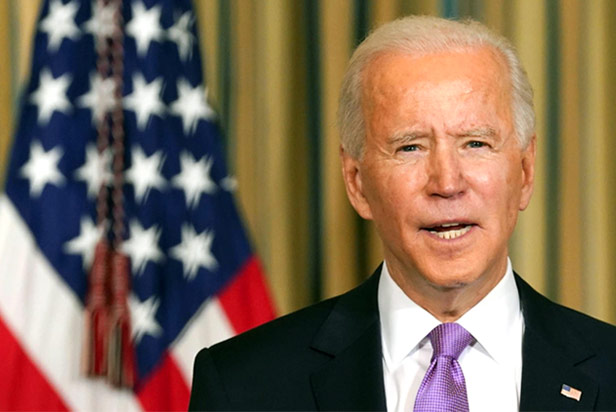News April 27, 2021
Biden Hiking Minimum Wage Requirement for Federal Contractors
The move could have a broad impact on the job market.
Promotional products firms and companies across industries that are federal contractors may have to pay their employees at least $15 an hour to maintain their status as federal contractors under a new executive order that President Joe Biden signed Tuesday, April 27. Companies wishing to become federal contractors will have to meet the wage minimum, the order indicates.
“Starting January 30, 2022, all agencies will need to incorporate a $15 minimum wage in new contract solicitations, and by March 30, 2022, all agencies will need to implement the minimum wage into new contracts,” the White House said in a statement. “Agencies must also implement the higher wage into existing contracts when the parties exercise their option to extend such contracts, which often occurs annually.”

Additionally, Biden’s executive order will also eliminate, by 2024, the “tipped minimum wage” – a kind of loophole that allows federal contractors to pay their tipped workers $7.65 an hour, provided the employees’ tips push them above the required minimum wage. With Biden’s new order, all employees of companies that are federal contractors will have to be paid at least $15 an hour before tips.
The order will also ensure a $15 minimum wage for federally contracted workers with disabilities, and restore minimum wage protections to outfitters and guides operating on federal land.
Once in place, the $15 minimum will not be static. Instead, it will rise at the rate of inflation. The current minimum a federal contractor can pay workers is $10.95 hourly – a rate that’s increased with inflation after being established as $10.10 by President Barack Obama in 2014.
“The executive order ensures that hundreds of thousands of workers no longer have to work full time and still live in poverty,” according to a White House statement. “It will improve the economic security of families and make progress toward reversing decades of income inequality.”
In general, federal contractors are individuals or employers who enter into a contract with the United States (any department or agency) to perform a specific job, supply labor and materials, or for the sale of products and services. A federal subcontractor is a company that does business with another company that holds direct contracts with the federal government.
The U.S. Department of Labor further notes that if “your business or organization has a Federal contract, subcontract or federally assisted construction contract, it may be subject to some or all of the civil rights requirements enforced by the Office of Federal Contract Compliance Programs.”
Critics of the $15 minimum wage say it will discourage hiring, leading to fewer jobs and more unemployed people. The higher minimum could also, critics say, drive up what the federal government spends with contractors, potentially having the knock-on effect of raising taxes. The Biden Administration contests those criticisms, saying a higher minimum wage will enhance productivity, reduce turnover and absenteeism and their associated costs, and cut down on supervisory expenses.
“Extensive, high-quality research shows that higher minimum wages have the intended effect of raising wages without significantly reducing employment,” Biden officials asserted.
While the heightened minimum applies just to federal contractor workers, the Biden administration believes it could help drive pay increases for other workers too by compelling non-federal contractor employers to pay more to attract and maintain quality personnel.
Earlier this year, Democrats pushed for the federal minimum wage for all employees in the United States to be increased to $15. The effort had promo professionals concerned, but it failed. Still, minimum wage increases appear to be a continued focus for Biden and the proposal could resurface.
